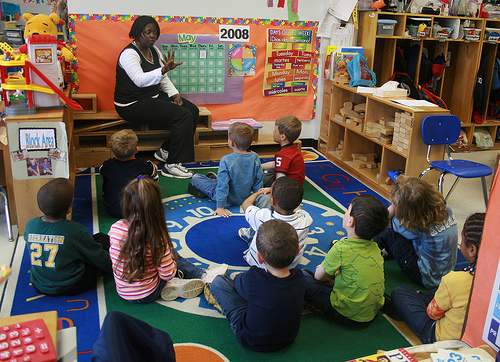A spirited group of MA citizens, End Common Core MA, hopes to eliminate Common Core standards from the commonwealth’s education system. The MA state attorney general has officially declared the potential vote to be constitutional—a significant leap toward End Common Core MA’s goal. The group’s next (grueling) step is to gather 65,000 signatures for their cause, which will guarantee their question a spot on the November 2016 ballot.
Common Core Standards for College- and Career-Readiness in Massachusetts
The Common Core State Standards (CCSS) are a set of academic standards for kindergarten through 12th grade; they specify what students should be able to do by the time they reach each specific grade. The history of the CCSS can be traced back to 2008, when former Arizona Governor Janet Napolitano made it her goal to initiate a set of national educational standards.
Napolitano and her team had two primary objectives in creating the CCSS. First, they hoped to make American students career- and college-ready; the theory is that students who meet the CCSS will be prepared for both paths. The second objective was to use the CCSS to compare US student achievement against that of the rest of the world.
There is no explicit federal mandate to adopt CCSS, but the Department of Education has created incentives for states to adopt it by including Common Core as a criteria in applications for federal grants. Over forty states, including Massachusetts and the District of Columbia, have adopted some aspect of the CCSS since it was first offered.
Against the Common Core Standards
Opponents of the CCSS say that the standards represent a “one-size-fits-all” approach to education and focus too much on assessment and testing preparation at the expense of genuine learning. Valerie Strauss, for example, said in a letter published in the Washington Post:
When I read that math standard and others like it, I realized the claim of the creators of the Common Core—that the standards are clear, easy to understand and research-based—was simply not true.
For the Common Core Standards
Proponents of the CCSS argue that the mandates give students the education they need to succeed in the economy of the twenty-first century. They also note that although the CCSS sets the standards, states and local districts are free to develop their own methods by which to meet those standards. Robert Pondiscio wrote in the National Review that:
It’s hard to imagine a single education reform that would do more to improve the verbal proficiency of American children—especially low-income and minority kids—than for
[ . . . ] a rich, coherent elementary and middle-school curriculum to take deep and permanent roots in American schools.
People tend to swap sides, too—CCSS is obviously a complex solution to an even more complex problem. It seems difficult for many citizens to be wholeheartedly for or against the CCSS.
Business Groups Paying Close Attention
Massachusetts business groups are watching the progress of this debate closely. They recognize the need for a well-educated workforce that can fill the demands of increasingly sophisticated positions. They also recognize that a workforce lacking sufficient skills will require the assistance of government training (and financial aid), which will likely lead to higher taxes.
As a result, the Massachusetts Business Alliance for Education (MBAE) has come out in opposition to the proposed vote. MBAE supports the CCSS and claims that it would cost Massachusetts millions of dollars to repeal and replace the standards at this time. The MBAE spokesperson also noted that removing CCSS would make it highly burdensome to amend or replace standards in the future.
What do you think about Common Core in MA? Does Massachusetts need the Common Core to maintain a competitive economy?







